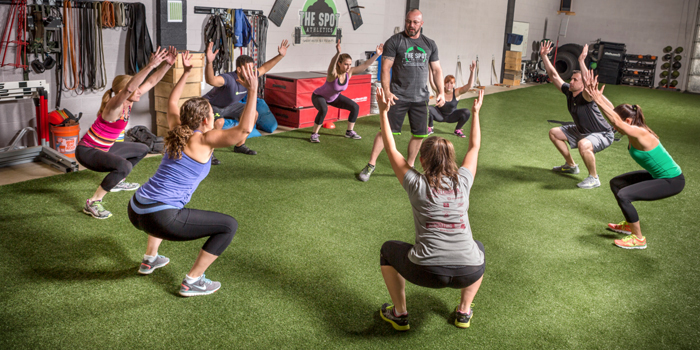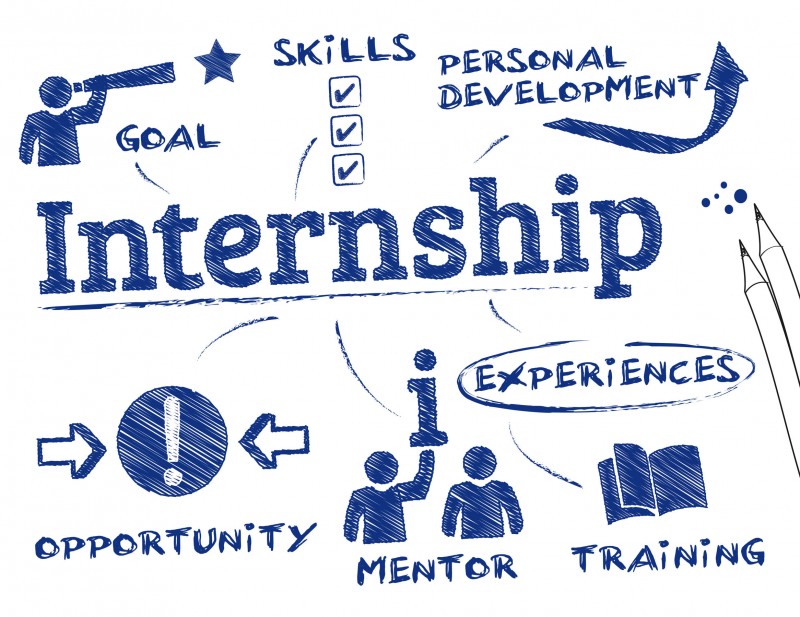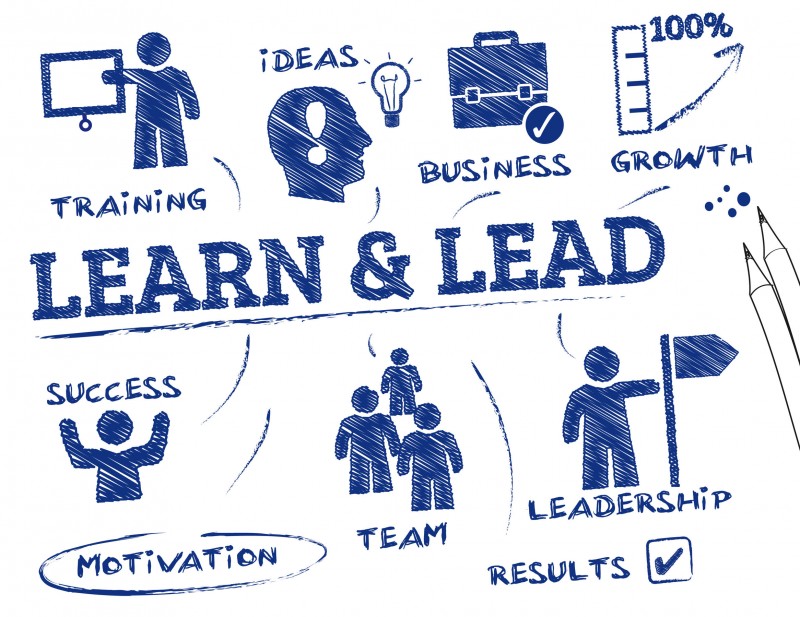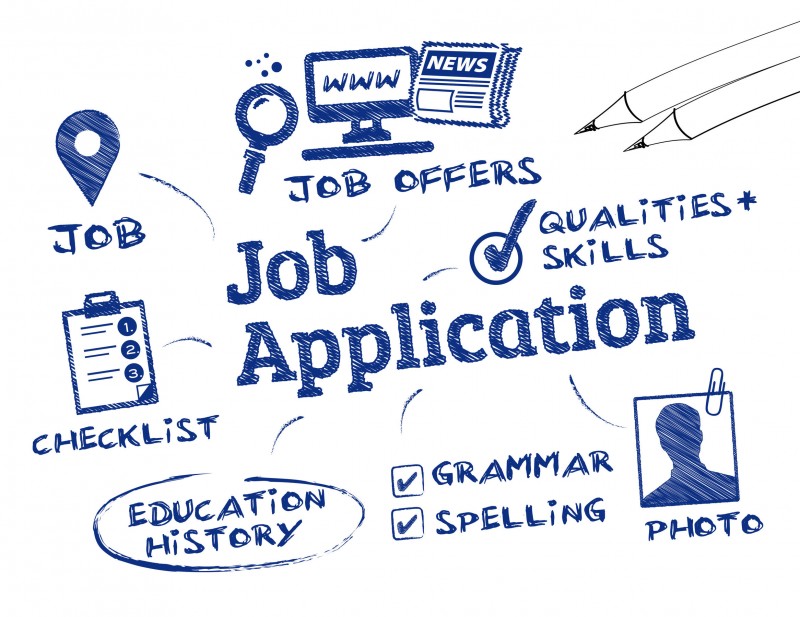
Header image courtesy of The Spot Athletics
So you want to land a prestigious internship with the university or private gym of your choice? Of course you do. Who doesn't want that internship with Ohio State football? Think of all the free swag and getting to hang out with the players! First off, if that is your sole purpose of getting an internship then please stop reading this article and find yourself a new career field. Second, in a field where all of you are a dime a dozen, what makes you think you deserve that internship?
Because you don't.
Most of the postings for internships or jobs all require the same things. Having run an internship program for over four years now, I have come across a lot of young coaches. The biggest thing is you need to stand out in order to get that position. Are you willing to stand out? Are you willing to do what it takes to get where you want to be?
Then read as I help you with six simple steps on how to land the internship that you’ve always wanted.
Step 1: Find Your Why
The first thing you need to ask yourself is, "why?" Why do you want to be in this career field? If it's for the money, the fame, or because you like to work out, then I'm going to tell you right now to get out, because you won't make it. You work long hours, you're underpaid, you're overworked, you aren't valued, job security is non-existent, and guess what? You're easily replaced.
RECENT: Coaches of Tomorrow — Building A Better Internship Program
So why do you want a career like that? A lot of you see the big paychecks Coach Cochran and Coach Doyle get and think that every strength job is like that. I've got news for you: the average salary is $39,622 per year. Average. The steps to get that average pay are grueling and require a lot of sacrifice and hustle for years. And I guarantee you that you will be working more than 40 hours a week for that average paycheck.
That's why your why is so important. What's your reason for pursuing this career? You need to have a why for what you do. Otherwise, you won't put forth much effort. You won't have much passion. There will be times when you question everything you do. You will want to quit. You will. You'll have those days where you just want to give it up. That's where your why comes into play. You won't be able to give 100% unless you know your why.
Why do you wake up in the morning? You can call them goals or whatever else you like, but if the things you're doing on a daily basis don't align with what you are attempting to achieve then you either need to step your game up or find another career.
I can't figure it out for you. That's something you need to figure out on your own. But here are some questions to get your mind going:
- What makes you feel alive?
- What are you good at?
- What are your strengths?
- What's important to you?
This field isn’t about you or your ego. It’s about others, from coaches to athletes and everybody in between. It’s not about you. And if you can’t get behind that then you won’t make it in this field how you think you should.
One of my whys is knowing that my impact on one person will have an impact on many people. This is one of if not the most important concepts in coaching. How I, as a coach, impact one athlete will impact hundreds down the road. What this means is that the mentoring and guidance I provide my athletes will affect and mold them for the rest of their lives. I have a direct influence in shaping them and who they are. And if I do my job the way I’m supposed to, that athlete will go off into the world a better person. And everyone they interact with, they will pass on the lessons they learned from me, directly and indirectly.
If that right there doesn’t fire you up and give you goosebumps, this isn’t the field for you. Think of the impact you can have.
Step 2: Network
Start networking before you need it — which means you should have started yesterday.
A lot of schools fail to teach young people how to network. This holds true for a lot of fields but especially in this field. It's not what you know; it's who you know. Networking will open doors for you. Put yourself out there, as the only thing you have to lose is that internship you want, and for most of you, that's a lot.
Something valuable that I learned years ago is to treat everybody as if they will provide value in your life to some degree at some point. Everybody you encounter, you may need one day, as everybody has some value to offer. It might not be of value for you, but they may be of value to somebody you know. That's an important concept. Go back and reread that statement. Being able to connect people you know with someone that adds value to what they do is a huge concept that many people overlook. Want to make an impression? Connect two people.
You may not need people you connect with now. It may not be for another five years, but when you meet someone for the first time, you have to make a solid first impression. You have to. I've given young coaches internship positions based on my first impression of them. Never dismiss anyone you meet as unimportant. Discover the value of everybody you meet. Don't dismiss anyone. The reason why is you that don't know who that person knows or where you may meet them down the road.
A lot of the coaches I have encountered during my career have been extremely helpful in getting me where I am today. And honestly, a lot of coaches want to help you. That’s what makes this field so awesome.
If you want to connect with someone, find a way to help that person out. In today's world, people are very self-centered. If you put others before you (which I mentioned earlier is what this field is about), and you offer to help them and are genuine about it, others will be appreciative. Most people will actually be surprised at such a thing. Same thing for the person you are connecting with. They might not need you now, but down the road, they may.
Don't forget to keep your mentors and the people you’ve networked within your circle. Remember those that helped you get where you are today. Keep in contact with them. Check in, see how things are, and see what they are doing. It will also keep you fresh in their minds.
Leave your ego at the door. Don't think of networking as a way to land you your internship. The idea with networking is to be making connections. It's not about you. It's about them. Get used to that in coaching. It's never about you. So as you network and meet new people, start thinking about connections.
Step 3: Get Certified and Join A Governing Body
Look at any posting for an internship, graduate assistant position, or coaching position. They all require you to be certified or be getting certified. The big ones are USAW, CSCS, and SCCC.
The USAW has no requirements for it so get that as soon as you can.
The CSCS and SCCC both have different requirements. The CSCS is more diverse, while the SCCC is geared towards collegiate strength and conditioning coaches. If you are going to stay in college, start off by getting the SCCC. If you're unsure, get the CSCS. Join either the CSCCa or the NSCA, as it looks good on your resume and opens doors to a huge network of other coaches and resources.
A big thanks to Mark Watts, who has helped me out with these things over the years. A lot of the stuff you will read in Step 4 and 5 is from talking with Mark and listening when he talked over the years.
Step 4: Resume, Cover Letter, and References
There is a reason that building a resume, cover letter, and reference list are after networking. A lot of these documents come across the head guy’s desk. A lot. Your connections will help you the most. Sorry, all of you are a piece of paper in the initial stages. The problem is that all of these pieces of paper say the same thing.
- Four-year degree in exercise science from The Greatest Undergrad University in the Country
- Volunteered here and there
- CSCS, USAW, FMS
- I really want to be a strength coach; I do.
That’s how all of your resumes look. Maybe they are on nicer paper, but you get the point.
Here are some tips to make yours stand out.
Resumé
Contact Information:
- Name and address
- Professional email. Please make sure your email is professional. You shouldn't ever use HotGyMbody_4_you@gmail.com type addresses. Your first initial and your last name should be sufficient.
- Phone numbers. Please make sure your voicemail is setup. Nothing says unprofessional like calling somebody and their voicemail still hasn't been set-up.
Statement of Intent/Objective Statement:
- Objectives/purpose for applying for this position. The purpose of this is to tell the head guy what you are trying to achieve.
- Be specific. Tailor your objective to the type of job for which you're applying.
- You need to answer this question: Why are you sending in your resumé for an internship?
Professional Statement:
- Summary of qualities and qualifications
- What makes you qualified?
- Explain why you want to be a coach and what knowledge and skills you have that will make you a great coach.
Relevant Experience:
- Things you have done that are similar to what you are applying for
Cover Letter
This accompanies the resumé. Think of it as an introduction. You're introducing yourself to an organization. This is the firm handshake. This is your first impression. You are demonstrating your interest in an internship and you're trying to draw attention to your resumé. Most of the time when I read a good, detailed cover letter I will give them an interview. I'm not saying that’s the case for most coaches, but your goal is to motivate the reader to want to interview you. Remember that your cover letter is individualized for the position for which you are applying. It reflects your knowledge of the employer's needs. All headings need to be correct. Make sure it is addressed to the right people. Don't screw up on this simple task. Also pay attention to where they want you to send this.
Here is the four-paragraph model Mark Watts introduced to me:
- Introduction: Who are you? Include name, degree, what you are applying for, and what are you trying to do.
- Body: Why do you want this position? Be specific. Why do you want to intern for who this letter is going to? Be descriptive and to the point. Show that you understand the nature of the position by explaining how your qualifications relate to it. Do not just repeat what is on your resumé.
- Body: How can you be an asset to the program? Tell us why we should hire you. What do you have to offer?
- Closing: Summary. A repeat of the first paragraph. Sum it up. Be direct and to the point. Remember your objective is to secure an interview. Your closing should suggest what you would like the reader to do or what action you plan to take to maintain contact.
References
Never put anyone on your reference list that you haven’t spoken to, and make sure your references are diverse. Don’t have all your references from the same school. This shows your network and your ability to connect with others. I had a potential intern a few years ago send me his resumé. His resume was unreal. I checked his references and there were two coaches who I had a professional relationship with. One of them said he would never hire him and the other had no idea he was a reference and was caught off-guard. Moral of the story: Your references are supposed to back you up. So if one tells me that they wouldn’t hire you, guess who isn’t getting an interview? You’re selling yourself to somebody and a good reference can enhance this. Ensure that you have a good working relationship with your reference.
The other thing is to make sure you ask your potential reference if they will even be a reference for you. No, don’t just say, “Hey, can you be a reference for me?” Say something along the lines of, “Hey coach, do you feel comfortable being a reference for me?” This allows your possible reference not to feel obligated or backed into a corner. And if they don’t feel comfortable they can give you some feedback as to why.
Always ensure that your references have a copy of your resumé. This way they are updated on everything going on in your life so that when a coach calls your reference, they aren’t caught off-guard and you are fresh in their mind. With that said, make sure you tell your reference every time you put them down as a reference. Again, communication is essential.
Do Not Lie
Just don't do it — not on your resumé or your references.
Step 5: Determining Where to Apply
Start this process early. Every day you should be checking the following websites for postings for internship possibilities, such as:
- http://footballscoop.com/strength-scoop/
- http://ncaamarket.ncaa.org/
- https://www.nsca.com/Membership/Career-Services/Job-Board/
- https://cscca.org/careers
- http://strengthperformance.com/group/joblistings
Don’t restrict yourself to internships for universities or gyms that are well known. If you’re open-minded about where you look for opportunities, great experiences will follow. Cliché, I know, but it’s cliché for a reason.
For example, interning with a small, local college might not be as glamorous as interning with a big Division I school, but the hands-on experience you’ll gain will be invaluable. And having that experience on your resumé, early in your college career, may lead to a bigger internship down the line. Do not pick a college because it's prestigious or competitive. I've seen a lot of top DI universities programs and I've seen a lot of DIII programs, and the DIII internships hold their weight against the powerhouse universities.
If you miss out on an internship with your dream college, don’t let that stop you from reapplying in the future. Getting denied from a college you love should only encourage you to try even harder to land the gig next time. In your next round, evaluate why you were denied and work to improve your chances.
Key questions when you are applying for an internship:
- Is this internship a good fit for me? Don’t just apply because it’s The Ohio State University. Know and understand the culture there and if it aligns with you.
- Will this position help me to get where I want to be? If you want to be a football strength coach there is no reason to intern two years on the Olympic side.
- Will this experience help me develop as a coach? There are a lot of bad internships out there. A lot. So my advice is to contact other interns that have gone through the program (they are usually listed on the universities strength and conditioning page) and ask about their experience.
- Can I support myself financially or at least have the means to do so? Almost every internship is unpaid. Why? Well, why should a coach pay you so he can teach you for four months how to do his job when he could just hire somebody that has experience? Start saving today, because you won’t have time to have a paid job while interning as a strength and conditioning coach. Save money to work for free!
- Am I willing to move for this internship? This one's pretty simple. Are you willing to move for the opportunity? If not then don’t apply.
Step 6: The Interview
Most internship sites have similar processes. They will have a phone or Skype interview, and if you get past that, a face-to-face interview.
The biggest thing is to do your research on where you are applying. Know everything there is to know about the university/training facility you are applying to. Trust me, it will impress the staff and it will separate you from other candidates. But with that said, know when and where to say any of this. Don't be a know-it-all.
Phone/Skype/Face-to-Face Interview:
- Charge your phone/computer.
- Is your connection strength strong?
- How does the audio sound?
- Know who's going to be interviewing you. Know their background. It will come in handy. I'm always impressed when a potential intern knows a little about me.
- If it’s a Skype interview, dress to impress. I’ve interviewed some people and I’m just dumbfounded by the presentation of themselves.
- Answer questions truthfully. Every interviewer has their own set of questions.
- Don’t try too hard to impress us with what you know. We get it. You're fresh out of college, full of thoughts and ideas, and think you know everything. But that’s not what we are looking for.
- Be yourself and nobody else. We will see right through it if you aren't yourself. If you are completely different when you start the internship, that is the best way out the door and to lose any type of recommendation.
- Follow up with an email. Something Mark always told me was to always send a hand-written note. Keep it simple. That makes an impression.
After all is said and done, now you wait. Up to this point you've done everything you can to put yourself in the best position possible to land yourself an internship. It's out of your hands.
If you don't get the position you want, don't get discouraged. Send the coach an email and ask for feedback. This is important, as you will get added insight on how to make yourself a better candidate. It also shows you're willing to learn, grow, and get better. This doesn't go unnoticed by head guys and makes a lasting impression.
Keep this in mind: “Doing an unpaid internship will not guarantee that you will get a job after it, but passing up on an unpaid internship guarantees that you will not get a job.” Toni Gentilcore
This isn't a job. This isn't a career. It's a lifestyle.
If you need help or have any questions please feel free to contact me at TheSCDC@gmail.com.
Photos courtesy of Jrg Schiemann © 123RF.com













